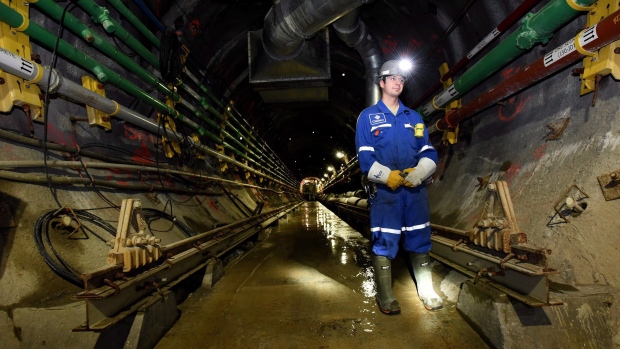Apr 28, 2017
Cameco posts surprise quarterly loss, hurt by weak uranium prices
, Reuters

Cameco Corp (CCO.TO) (CCJ.N), the world's second-biggest uranium producer, posted a bigger-than-expected quarterly loss, partly hurt by the termination of a contract by Tokyo Electric Power Co, operator of Japan's wrecked Fukushima nuclear plant.
The Canadian company said its results were also hurt by weak uranium prices amid a prolonged glut.
Spot prices of uranium, used to fuel nuclear reactors, dipped to a 13-year low late last year and have rebounded only modestly in 2017.
Cameco said severance costs and a strengthening Canadian dollar also weighed on its first-quarter results.
The net loss attributable to Cameco's equity holders was $18 million, or five cents per share, in the first quarter ended March 31, compared with a profit of $78 million, or 20 cents per share, a year earlier.
Excluding items, the company lost seven cents per share, bigger than the average analyst estimate of one cent, according to Thomson Reuters I/B/E/S.
Revenue at the Saskatoon, Saskatchewan-based company fell nearly four per cent to $393 million, with declines stemmed by high revenue from its Nukem unit, which is a nuclear fuel broker.
Analysts had expected revenue of $372.345 million.



